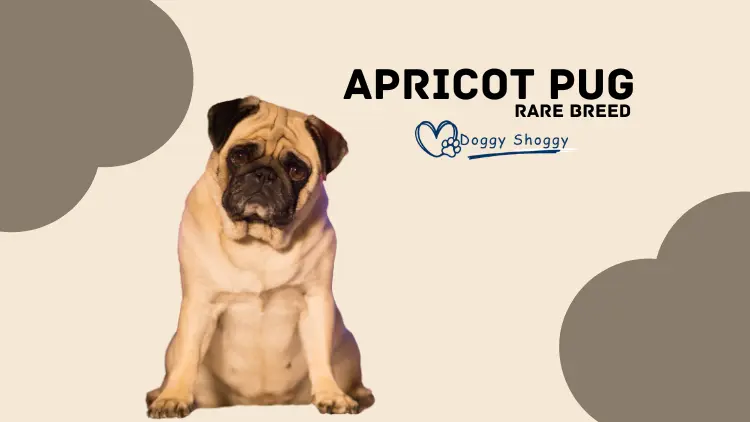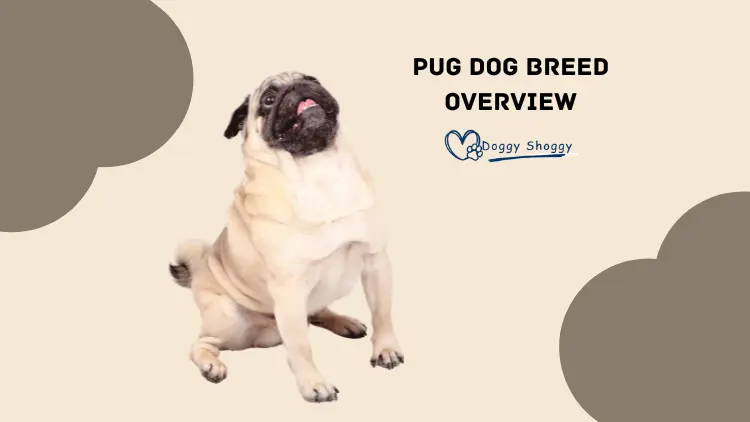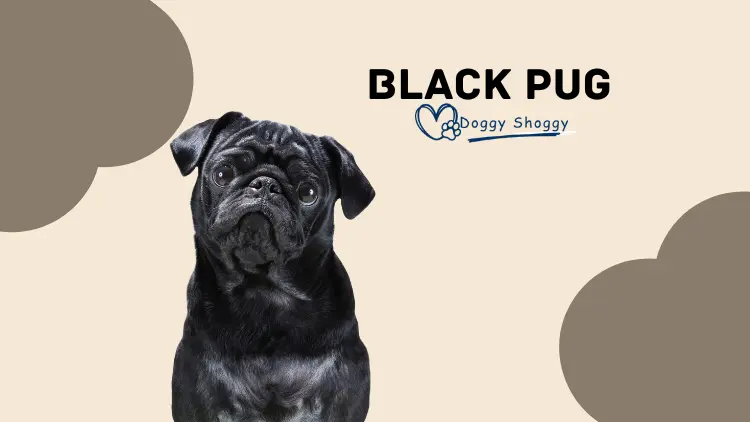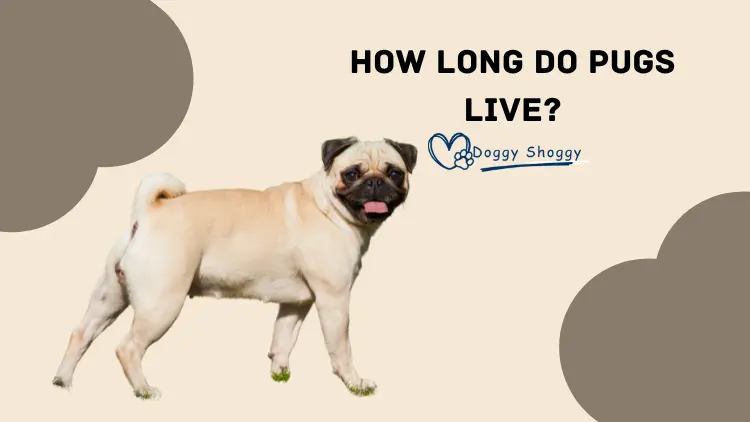Lifespan of Pugs
Pugs are cute dogs with wrinkly faces and love to play. Lifespan of Pugs is about 12 to 15 years, but some can live even longer if they’re taken care of well. Even though people sometimes say one dog year is like seven human years, for Pugs, it’s more like five human years when they’re young. The way Pugs are bred can affect how long they live and their health. If people get Pugs from good breeders or adopt them from shelters, it can help them stay healthy longer. Taking Pugs to the vet regularly, giving them good food, letting them run around, and giving them love and safety all help them live their best lives.
Understanding the Lifespan of Pugs
Pugs are lovable pets with cute faces and fun personalities that many families adore. But have you ever thought about the Lifespan of Pugs? Let’s explore how many years these adorable dogs usually stay with us.
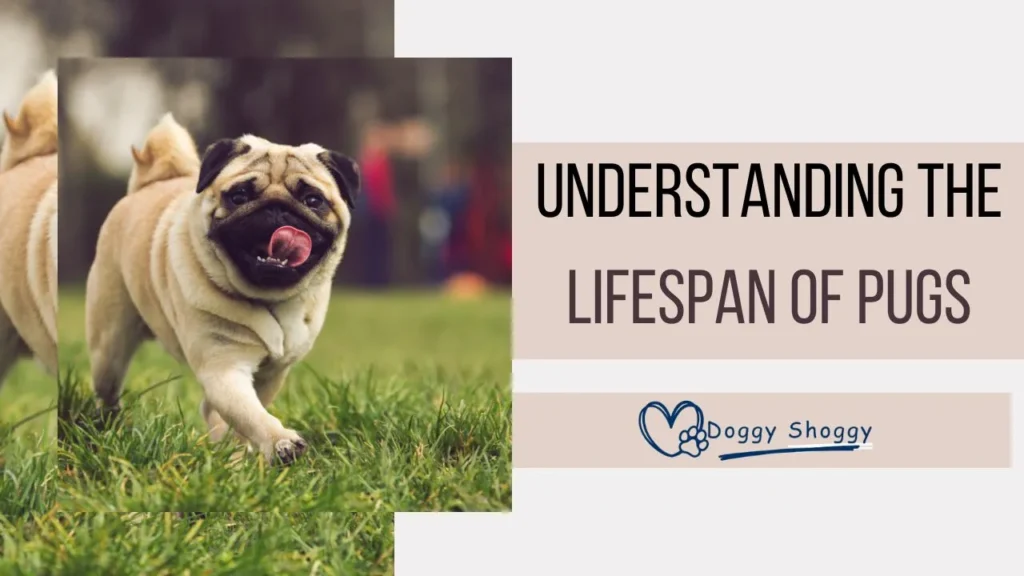
The Basics of lifespan of Pugs
Lifespan of Pugs is about 12 to 15 years, but some can live even longer if they’re taken care of well. Knowing what affects how long they live can help us make sure they’re happy and healthy throughout their lives.
Pug Years vs Human Years
Let’s start by correcting a common misunderstanding: one year for a dog isn’t the same as seven years for a human. For Pugs, when they’re young, one year of their life is more like five years for a human. As they grow older, this ratio changes, but it’s important to remember this when thinking about how long they’ll live.
Genetics and Breeding History
The genes that Pugs inherit from their parents really matter for lifespan of Pugs. Good breeders pick the right Pugs to mate so that their puppies are less likely to have health problems that could make them live shorter lives. If you get a Pug from a good breeder or adopt one from a shelter, it’s more likely to live a long life.
Factors Influencing the Lifespan of Pugs
Pugs are usually pretty healthy, but lots of things can affect how long they stay with us. Let’s look at some of these things to figure out how to help our Pug friends live longer and happier lives.
Diet and Nutrition
Giving your Pug the right food is super important for keeping them healthy and increasing the lifespan of Pugs. A diet that has all the stuff they need and not too much can help prevent them from getting too heavy, which could lead to problems like sore joints and heart trouble. Make sure you’re not giving them too much food and choose good dog food that vets suggest.
Exercise and Activity Levels
It’s really important to make sure your Pug gets enough exercise to stay at a healthy weight and not get too heavy. Taking them for walks every day, playing with them, and giving them things to keep their brain busy all help them stay healthy and live longer. But be careful not to make them do too much, especially when it’s hot outside, because their short noses can make it hard for them to breathe.
Readers Also Like: Jack Russell Chihuahua Mix
Veterinary Care and Preventive Measures
Taking your Pug to the vet regularly and making sure they get their shots on time are really important. These check-ups can catch any problems early and stop them from getting worse. It’s also a good idea to take care of their teeth, make sure they don’t have any bugs on them, and consider getting them fixed. Doing all of this increase the lifespan of Pugs
Nurturing Practices to Extend a Pug’s Lifespan
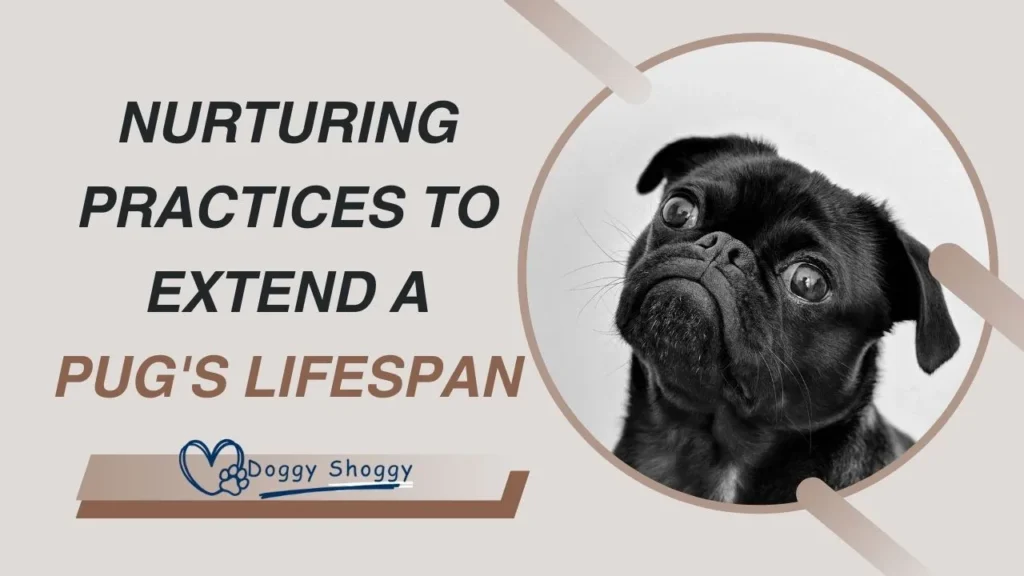
As good pet owners, we want our Pugs to have long, happy lives. Here are some things we can do to help them live longer and be happier.
Mental Stimulation and Socialization
Pugs thrive on companionship and mental stimulation. Engage them in interactive games, training sessions, and social outings to keep their minds sharp and their spirits high. Providing them with toys and puzzles can also prevent boredom and destructive behavior.
Grooming and Hygiene
Keeping your Pug clean isn’t just about making them look good—it also stops them from getting skin problems and other health issues. Brush their fur often, clean their wrinkles and ears, and trim their nails when they get too long. It’s also a good idea to bath them now and then with gentle dog shampoo to keep them smelling fresh and clean.
Environmental Safety and Comfort
Make sure your Pug has a safe and cozy place to be, both inside and outside. Keep them away from really hot or really cold weather, and make sure they don’t come into contact with anything that could hurt them, like dangerous chemicals. Give them a comfy bed to sleep in, always have fresh water available, and give them a quiet spot where they can go to chill out whenever they need to.
Common Health Concerns Affecting the Lifespan of Pugs
Even though Pugs are usually strong dogs, they can have some health problems that might make them live shorter lives. Knowing about these issues can help you do things to keep your Pug healthy and happy.
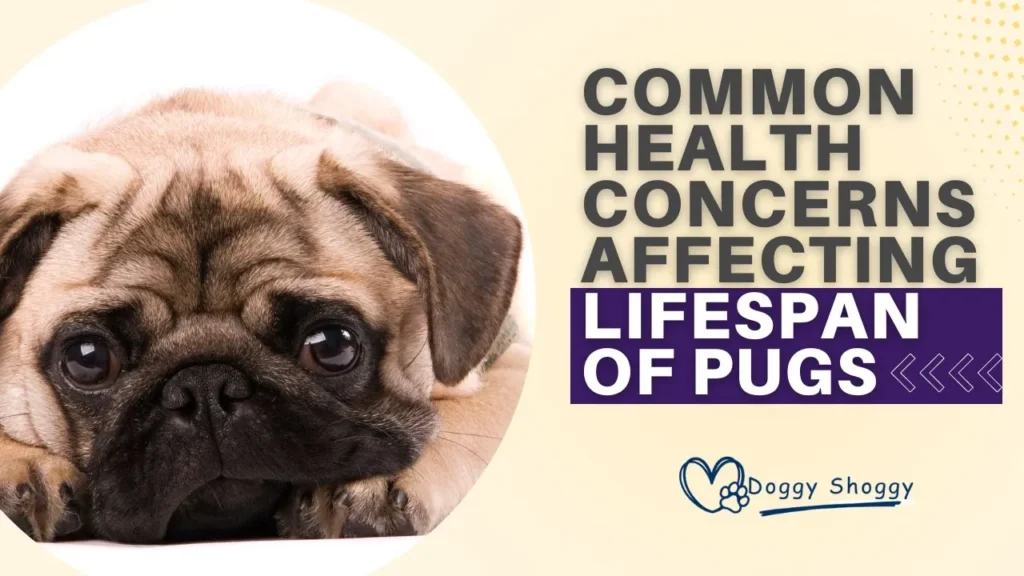
Brachycephalic Syndrome
Because Pugs have flat faces and small airways, they can have trouble breathing, which is called brachycephalic syndrome. Signs of this can include snorting, wheezing, and having a hard time breathing. This might get worse as they get older. It’s important to keep your Pug cool and not let them do too much exercise when it’s hot outside, to help them breathe better.
Obesity and Joint Problems
Pugs like to eat, and they can get heavy pretty easily, which can cause problems with their joints. To help them stay a good weight, give them healthy food, watch how much they eat, and make sure they get enough exercise. That way, their joints won’t have to work so hard.
Eye Disorders
Pugs often have eye problems like ulcers, dry eyes, or trouble with their retina. Keep their eyes clean, look out for any gunk or redness, and take them to the vet regularly to catch any eye problems early.
Bottom Line
To help increase the lifespan of Pugs life, you need to be dedicated and take care of them well. Understand what things affect how long they live and do things to help them stay healthy, like giving them good food and taking them for walks. By doing these things, you can give your Pug the best chance at a happy life with you.
Useful and Unique FAQs With Answer
How long do Pugs typically live?
Lifespan of Pugs is generally 12 to 15 years, but some can live even longer with proper care and attention.
What factors influence a Pug’s lifespan?
Various factors, including genetics, diet, exercise, veterinary care, and environmental factors, can impact a Pug’s lifespan.
Are Pugs prone to any specific health issues?
Yes, Pugs are prone to certain health conditions, including respiratory issues, obesity, joint problems, and eye disorders.
How can I help my Pug live a longer life?
Providing a balanced diet, regular exercise, routine veterinary care, mental stimulation, and a safe environment can help extend Lifespan of Pugs
Is it essential to buy from a reputable breeder?
Yes, obtaining a Pug from a reputable breeder or adopting from a shelter can increase the likelihood of a longer and healthier life due to careful breeding practices.
How often should I take my Pug to the vet?
Pugs should have regular veterinary check-ups at least once a year to detect and prevent potential health issues early on.
What should I feed to increase lifespan of Pugs
A balanced diet consisting of high-quality dog food recommended by veterinarians can help prevent obesity and related health issues in Pugs.
Do Pugs require a lot of exercise?
While Pugs enjoy moderate exercise, they should not be overexerted due to their brachycephalic nature. Daily walks and playtime are typically sufficient to increase lifespan of Pugs
Are there any specific grooming needs for Pugs?
Pugs require regular grooming, including coat brushing, wrinkle cleaning, ear cleaning, and nail trimming, to maintain their health and hygiene.
What signs should I watch for that may indicate health problems in my Pug?
Watch for symptoms such as difficulty breathing, excessive weight gain, eye discharge, lethargy, and changes in behavior, as these could indicate underlying health issues requiring veterinary attention.

